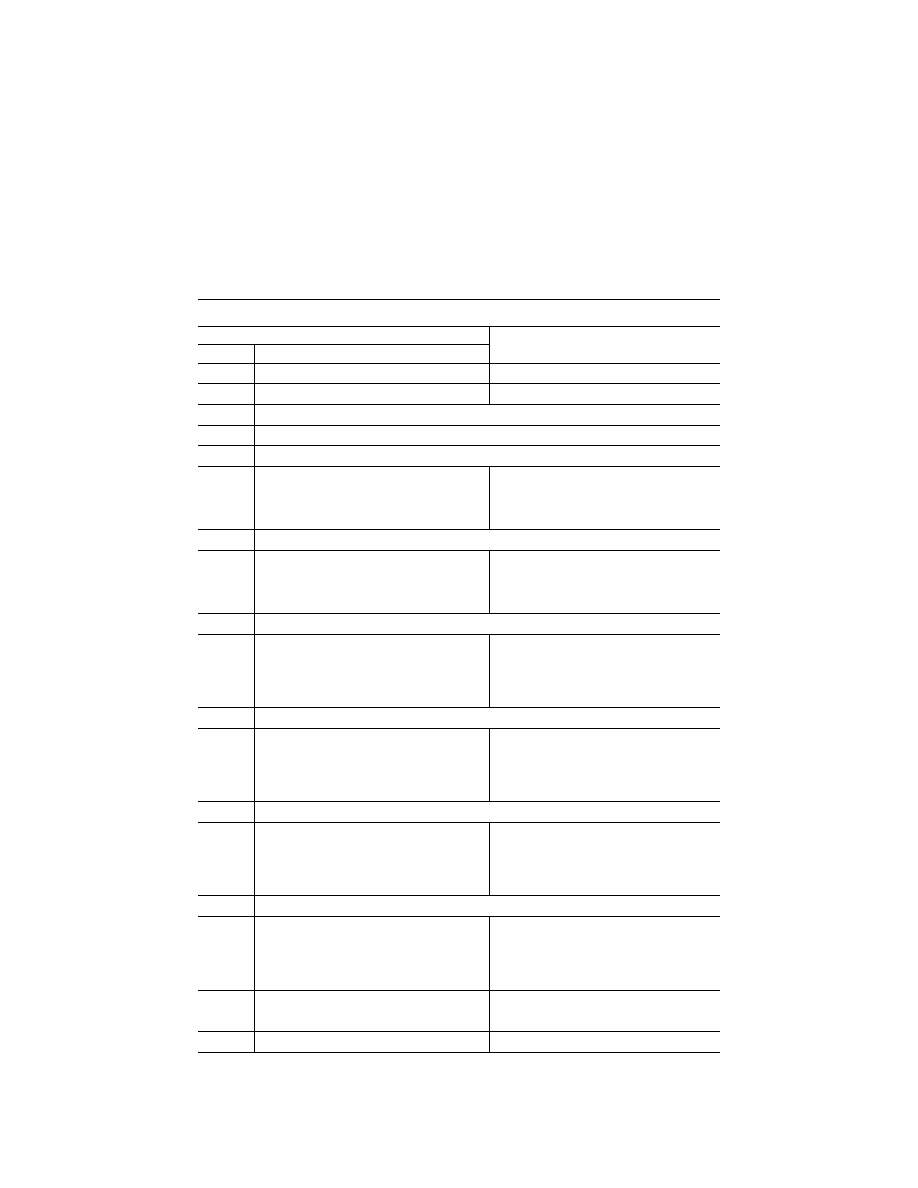
166
14 CFR Ch. I (1–1–14 Edition)
Pt. 60, App. B
T
ABLE
B2B—A
LTERNATIVE
D
ATA
S
OURCE FOR
FTD L
EVEL
5 S
MALL
, S
INGLE
E
NGINE
(R
ECIPROCATING
) A
IRPLANE
—Continued
QPS requirement
The performance parameters in this table must be used to program the FTD if flight test data is not used to program the FTD.
Applicable test
Authorized performance range
Entry No.
Title and procedure
1.f.1. ...........
Acceleration; idle to takeoff power ..................................
2–4 Seconds.
1.f.2. ...........
Deceleration; takeoff power to idle .................................
2–4 Seconds.
2. ................
Handling Qualities
2.c. .............
Longitudinal Tests
2.c.1. ..........
Power change force
(a) Trim for straight and level flight at 80% of normal
cruise airspeed with necessary power. Reduce power
to flight idle. Do not change trim or configuration.
After stabilized, record column force necessary to
maintain original airspeed.
5–15 lbs (2.2–6.6 daN) of force (Pull).
OR
(b) Trim for straight and level flight at 80% of normal
cruise airspeed with necessary power. Add power to
maximum setting. Do not change trim or configura-
tion. After stabilized, record column force necessary
to maintain original airspeed..
5–15 lbs (2.2–6.6 daN) of force (Push).
2.c.2. ..........
Flap/slat change force
(a) Trim for straight and level flight with flaps fully re-
tracted at a constant airspeed within the flaps-ex-
tended airspeed range. Do not adjust trim or power.
Extend the flaps to 50% of full flap travel. After sta-
bilized, record stick force necessary to maintain origi-
nal airspeed.
5–15 lbs (2.2–6.6 daN) of force (Pull).
OR
(b) Trim for straight and level flight with flaps extended
to 50% of full flap travel, at a constant airspeed with-
in the flaps-extended airspeed range. Do not adjust
trim or power. Retract the flaps to zero. After sta-
bilized, record stick force necessary to maintain origi-
nal airspeed.
5–15 lbs (2.2–6.6 daN) of force (Push).
2.c.4. ..........
Gear change force
(a) Trim for straight and level flight with landing gear re-
tracted at a constant airspeed within the landing
gear-extended airspeed range. Do not adjust trim or
power. Extend the landing gear. After stabilized,
record stick force necessary to maintain original air-
speed.
2–12 lbs (0.88–5.3 daN) of force (Pull).
OR
(b) Trim for straight and level flight with landing gear
extended, at a constant airspeed within the landing
gear-extended airspeed range. Do not adjust trim or
power. Retract the landing gear. After stabilized,
record stick force necessary to maintain original air-
speed.
2–12 lbs (0.88–5.3 daN) of force (Push).
2.c.5. ..........
Longitudinal trim ..............................................................
Must be able to trim longitudinal stick force to ‘‘zero’’ in
each of the following configurations: cruise; ap-
proach; and landing.
2.c.7. ..........
Longitudinal static stability ..............................................
Must exhibit positive static stability.
VerDate Mar<15>2010
20:48 Jan 30, 2014
Jkt 232047
PO 00000
Frm 00176
Fmt 8010
Sfmt 8002
Q:\14\14V2.TXT
ofr150
PsN: PC150